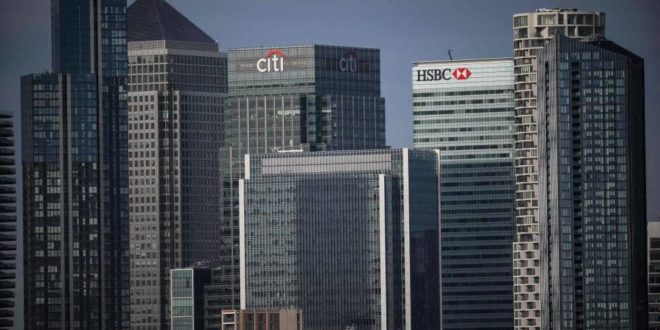The British economy avoided entering a recession after the growth rate remained zero in the last three months of 2022, but Jeremy Hunt, Minister of Finance, warned, on Friday, that the Kingdom “has not yet overcome the difficulties” against the backdrop of high inflation rates.
Gross domestic product grew by zero in the fourth quarter, in line with expectations, after contracting by 0.3 percent in the previous six months, the National Bureau of Statistics said in a statement.
The growth rate of zero in the fourth quarter contrasts with the position of Germany, the largest economic power in Europe, whose gross domestic product shrank by 0.2 percent in the same period due to the war in Ukraine.
In all, the UK economy improved by 4.1% last year, after growing by 7.4% in 2021, according to the National Office statement.
strikes
But skyrocketing consumer prices sparked a cost-of-living crisis in Britain and led to widespread strikes.
The data showed that strikes in the transportation sector negatively affected output in December.
“We are not over the edge yet, especially when it comes to inflation,” Hunt said, but noted that “our economy is more resilient than many had feared.”
“Disappointment” that everyone feels
A recession is technically defined as negative growth over two consecutive quarters.
“While we can’t put a sign of recession on the economy, it’s clear that the UK is suffering and everyone is feeling the pinch in the country’s economy,” said Laura Souter, an analyst at IGBL.
And she added, “This neutral zone, where no contraction or growth has been recorded, will not lead to people celebrating in the street.”
On Thursday, Andrew Bailey, Governor of the Bank of England, expressed his concern “about persistently high inflation, even if this is in light of indications of a slowdown in the rate of price increase.”
His remarks before a cross-party parliamentary committee reinforced expectations about the possibility of the UK raising interest rates again, according to analysts.
raise the interest rate
In its last monetary policy meeting held last week, the Bank of England raised interest rates for the tenth time in a row, while authorities in various countries of the world are rushing to control runaway inflation.
The bank raised borrowing costs by half a point to 4%, the highest level since late 2008 during the global financial crisis.
This led to an increase in the value of mortgages and other loan repayments, which greatly affects economic activity and exacerbates the cost of living crisis.
But people who have enough cash to save benefit from higher rates.
High inflation
UK inflation slowed to 10.5% in December, but is still at the highest levels in 40 years and still more than five times higher than the Bank of England’s target of 2%.
The Conservative government of Rishi Sunak, the prime minister, which partly subsidizes energy bills for businesses and households, has pledged to cut UK inflation to half its rate this year, although the bulk of the decision comes down to central bank policy and market forces.
Sunak is seeking to bring about a change in the currently declining fortunes of his government, before the expected general elections next year.
Polls show that the opposition Labor Party has a wide lead over the Conservatives, who have been in power since 2010.
The British economy will shrink
The specter of stagnation still hangs over the kingdom. The Bank of England reported last week that “the British economy will contract in each quarter of 2023”.
“We suspect that the repercussions of high inflation and high interest rates will cause a recession this year,” Paul Dales, an analyst at Capital Economics, said on Friday.
The International Monetary Fund dealt another blow to Sunak, when it predicted that “the United Kingdom will be the only country among the G7 countries that records negative growth in 2023.”
In 2020, the United Kingdom recorded the largest contraction among the Group of Seven, due to the repercussions of “Corona”. It remains the only country in the group where output has not yet returned to pre-pandemic levels.
And the Statistics Office confirmed, on Friday, that “British economic activity is 0.8% lower than the levels it recorded in 2019.” (AFP)
 Media ININ Economy We Trust
Media ININ Economy We Trust








